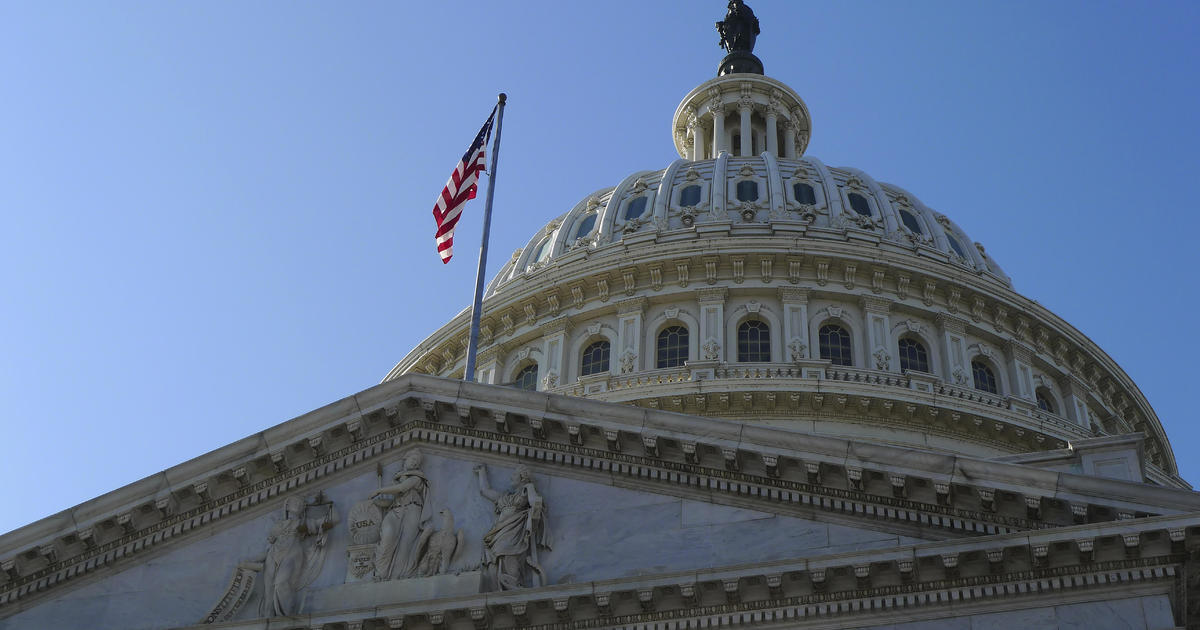CBS News
New bill seeks to strengthen bribery statute after Sen. Menendez accused of taking gold bars, cash for official acts

The criminal charges against New Jersey Democratic Sen. Bob Menendez — which include allegations of accepting gifts and cash in exchange for official acts— have prompted a bipartisan attempt in Congress to expand federal law on bribery.
The legislation, first reported by CBS News, comes from Democratic Rep. Angie Craig of Minnesota and has the support of GOP Rep. Nancy Mace of South Carolina. Craig explicitly tied Menendez’s alleged actions to the bill she’s introducing.
“Public officials should be held to the highest ethical and legal standards – not be immune from them,” Craig said in a statement. “Senator Menendez’ case is an urgently needed reminder of the risks weak bribery laws pose to our democracy and national security. My bipartisan bill changes that to ensure public officials who abuse their office can be held accountable.”
According to Craig’s office, the bill is known as the Gifts for Officials, Legislators and Delegates (GOLD) Standard Act in a clear rebuke of Menendez, who was the chair of the Senate Foreign Relations Committee when he was initially indicted.
The most recent superseding indictment against Menendez reiterated allegations the senator and his wife had “over one hundred thousand dollars’ worth of gold bars” tied to the bribery allegations and also later allegedly trying to sell gold bars. They’ve been accused of accepting payments and gifts in exchange for meeting with foreign leaders, securing a business deal for a codefendant and working to disrupt prosecutions.
Both Menendez and his wife, Nadine, have pleaded not guilty to the charges, which include bribery and conspiracy. The New Jersey Democrat has denied wrongdoing and called the indictment “a flagrant abuse of power” as multiple challengers vie for his seat in the 2024 election.
Bribery law prohibits public officials from accepting bribes or gifts in exchange for an official act. The statute under Title 18, Section 201 (a)(3) of the U.S. code defines an official act as “any decision or action on any question, matter, cause, suit, proceeding or controversy, which may at any time be pending, or which may by law be brought before any public official.”
The new bipartisan bill seeks to expand that definition to include the “approval, disapproval, recommendation” and “rendering of advice, or investigation” related to any pending issue that may come before federal officials over the course of their work.
Menendez’s Senate office did not respond to requests for comment on the bill.
The coalition behind the proposed law is an unusual one. Craig is a battleground district Democrat from Minnesota who has called for ethics reforms on Capitol Hill. Mace was one of eight Republicans who voted to oust former GOP Speaker Kevin McCarthy last fall.
“By cosponsoring this bill, we aim to close loopholes and strengthen the definition of ‘official act,’ ensuring that public officials, no matter who, are held accountable for their actions and restoring faith in the integrity of our democracy,” Mace’s office said in a statement.
The bill will likely face a difficult path in the House during this election year. Since McCarthy was ousted as speaker, the Republican majority in the House has faced challenges in passing major legislation. Menendez’s son represents a New Jersey House district.
The proposed law comes after a 2016 Supreme Court decision that adopted a “more limited definition” of an official act. In an 8-0 ruling, the high court vacated the conviction of former Virginia Gov. Bob McDonnell, who was accused of taking bribes from a wealthy businessman in exchange for promoting his business.
The court ultimately ruled that the “official acts” prosecutors alleged McDonnell took — including setting up a meeting and organizing an event without any further actions — did not fall within the proper meaning of bribery under federal law. The Justice Department dropped the case months later.
The Supreme Court’s ruling left open the possibility that less concrete acts by government officials do not fall under the authority of the bribery statute.
The Justice Department, which prosecutes federal bribery charges through its Public Integrity Unit, declined to comment on the proposed legislation when contacted by CBS News.
Maria Cruz Melendez — a former federal prosecutor in the Eastern District of New York who served as Deputy Chief of that office’s Public Integrity Unit — said generally that when it comes to criminal statutes, “Greater clarity is always better for everyone involved and all potential stakeholders.”
The McDonnell decision and rulings like it have not necessarily altered the types of cases that federal prosecutors file, but according to Melendez, the presentation of evidence and jury instructions has changed to reflect the law and ensure all parties are comfortable with the jury’s verdict.
A former federal prosecutor who is now a partner at the New York law firm Skadden, Melendez warned that changes to criminal statutes might yield competing results that could prompt further questions and disagreements.
“When someone proposes to expand the list of things that might be considered an official act, certainly I think it could lead to an increase in prosecutions,” Melendez said. “Depending on the language that is used, you could also be building an additional ambiguity” around the meanings of the new words, which could prompt further litigation, she added.
Melendez, who is neutral on the proposed legislation, noted that new language brings new opportunities for defendants to “test” the boundaries of the language and present new legal questions that must be decided by courts in the future.
“The clearer and more detailed a statute can be, the better, but even with best efforts, reasonable people will disagree as to what a term actually means,” Melendez said.
CBS News
“Sandwiches of History”: Resurrecting sandwich recipes that time forgot

Barry Enderwick is eating his way through history, one sandwich at a time. Every day from his home in San Jose, California, Enderwick posts a cooking video from a recipe that time forgot. From the 1905 British book “Salads, Sandwiches and Savouries,” Enderwick prepared the New York Sandwich.
The recipe called for 24 oysters, minced and mixed with mayonnaise, seasoned with lemon juice and pepper, and spread over buttered day-old French bread.
Rescuing recipes from the dustbin of history doesn’t always lead to culinary success. Sampling his New York Sandwich, Enderwick decried it as “a textural wasteland. No, thank you.” Into the trash bin it went!
But Enderwick’s efforts have yielded his own cookbook, a collection of some of the strangest – and sometimes unexpectedly delicious – historical recipes you’ve never heard of.
Harvard Common Press
He even has a traveling stage show: “Sandwiches of History Live.”
From the condiments to the sliced bread, this former Netflix executive has become something of a sandwich celebrity. “You can put just about anything in-between two slices of bread,” he said. “And it’s portable! In general, a sandwich is pretty easy fare. And so, they just have universal appeal.”
Though the sandwich gets its name famously from the Fourth Earl of Sandwich, the earliest sandwich Enderwick has eaten dates from 200 B.C.E. China, a seared beef sandwich called Rou Jia Mo.
He declared it delicious. “Between the onions, and all those spices and the soy sauce … oh my God! Oh man, this is so good!”
While Elvis was famous for his peanut butter and banana concoction, Enderwick says there’s another celebrity who should be more famous for his sandwich: Gene Kelly, who he says had “the greatest man sandwich in the world, which was basically mashed potatoes on bread. And it was delicious.”
Whether it’s a peanut and sardine sandwich (from “Blondie’s Cook Book” from 1947), or the parmesian radish sandwich (from 1909’s “The Up-To-Date Sandwich Book”), Enderwick tries to get a taste of who we were – good or gross – one recipe at a time.
RECIPE: A sophisticated club sandwich
Blogger Barry Enderwick, of Sandwiches of History, offers “Sunday Morning” viewers a 1958 recipe for a club sandwich that, he says, shouldn’t work, but actually does, really well!
MORE: “Sunday Morning” 2024 “Food Issue” recipe index
Delicious menu suggestions from top chefs, cookbook authors, food writers, restaurateurs, and the editors of Food & Wine magazine.
For more info:
Story produced by Anthony Laudato. Editor: Chad Cardin.
CBS News
The cream of the crop in butter

Watch CBS News
Be the first to know
Get browser notifications for breaking news, live events, and exclusive reporting.
CBS News
Baking an ancient bread in Tennessee

Watch CBS News
Be the first to know
Get browser notifications for breaking news, live events, and exclusive reporting.








